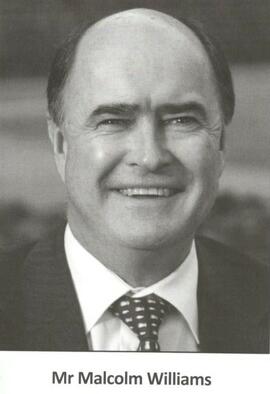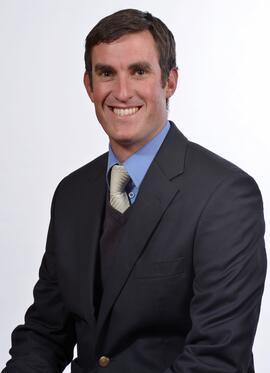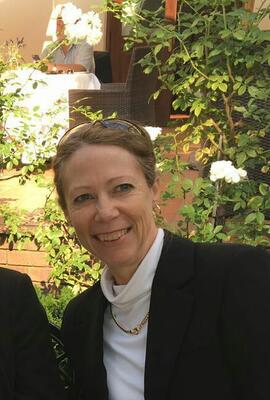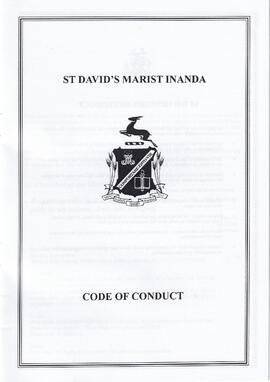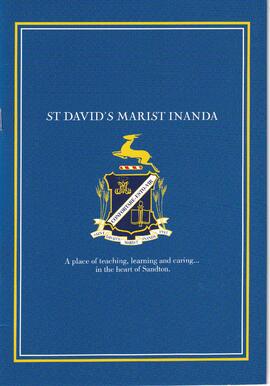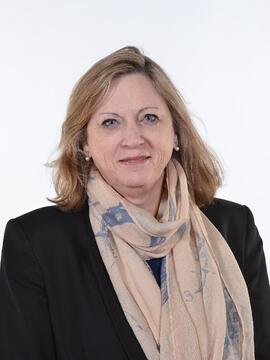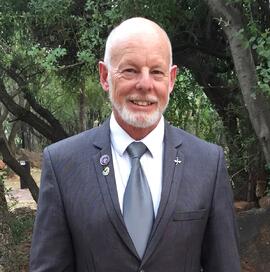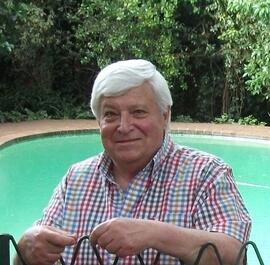Interview with Malcolm Williams 1997 - 2013 Staff
- ZA ZAR STDS 202000837
- Unidad documental simple
- 2013
Interview with Malcolm Williams – Staff 1997 – 2013
Malcolm joined the staff of St David’s as deputy headmaster in July 1997 whilst Paul Edey, the headmaster
was on a pilgrimage. Malcolm came from Sandown High School where he was deputy headmaster having
also taught at King Edward VII High School for a number of years. Malcolm was St David’s 12th
headmaster and the second longest serving head after Br Anthony.
When Malcolm arrived, the sense of family and positive rapport between pupils and staff was very evident.
There was a strong focus on ethos and values which permeated the school. However the school had none
of the buildings it enjoys today. There was no hall, no pavilion, no media Centre, no astro and no Br
Anthony wing. The construction of the hall and 6 classrooms began in 1998. In 1997 there were 350 pupils
enrolled in the high school and in 2103, 563. The past four years has seen increased enrolment every year
averaging 28 pupils per class. St David’s has become the school of choice in Johannesburg with 90% of
the pupils coming through from the prep school. The school is also known as one of the top academic
schools in the country and has been acknowledged as one of the main feeder schools to Wits University by
vice chancellor, Adam Habib.
In 2002 Malcolm was appointed headmaster and was determined to change the profile of the school with
pupil leadership, celebrating individual talents, creating strength in academics, sport and cultural activities.
He did this moving the school forward in all areas with the firm resolve to achieve excellence without
compromising the core values and Marist ethos of the school.
Both Paul Edey, in his new role of executive head and Malcolm were involved with professional bodies
serving in various roles on ISASA , SAHISA and CASPAat provincial and national levels . Mike Greeff
continues the school’s involvement in Catholic schools’ organisations, MSC etc.
Malcolm is a keen sportsman and hockey player and did much to encourage development of the sport at St
David’s serving as coach and convener and member of the Executive of USSASA boy’s hockey. In fact, in
2001 St David’s hockey moved into section A of Aitken Trophy with the school now one of the strongest
nationally in this area. In 2003 St David’s rugby team beat KES and 1st cricket won the Johnny Waite
Knockout.
There has been tremendous growth in Music and Drama from almost nothing to the vibrant parts of the
school they now are, as well as being academic subjects, to add to the successes in debating and public
speaking. Academic records and excellence were sustained having pupils in the top 50 candidates for
matric since being incorporated into the IEB.
Key aspects Malcolm enjoyed seeing become part of the school include: the Marist principle of ‘Presence’,
with boys and staff supported in all areas of school life; Academic excellence, which has been sustained
over time and is measured by a range of outside benchmarks including the IEB examinations; the range of
academic enrichment initiatives being undertaken, including participation in IEB pilot projects; the growth
and development of a professional staff of high quality; a sports programme which enables the school and
the boys to achieve success at provincial and national level, and also provides opportunities for all; a highperforming,
broad-based, dynamic, and diverse cultural programme; increased pupil leadership
opportunities and mechanisms for recognition, particularly in the matric leadership group; structures
established to increase the level of involvement in outreach and partnership activities; the continued
strength of the Staff Sponsorship Fund; the expansion of the school’s pastoral care structures and the
house system; the excellent facilities, the most recent and visible of these being the Brother Anthony Wing;
the ‘Whole School Day’ programme; the effective partnerships with a number of non-government
organisations and the St David’s Foundation.
Malcolm thoroughly enjoyed his years at St David’s Marist Inanda but it was not a simple matter to leave
such a fine school,with its special Marist ethos. He was enriched by working with a talented, loyal and
energised staff who give everything for the benefit of the boys in their care, for each other, and for the
school. Many of them are good friends as well as colleagues. Malcolm enjoyed developing a strong rapport
with parents over the years, who so often go the extra mile for the school. The boys themselves always
inspired him with their huge commitment, their passion for their school and their tremendous sense of
camaraderie, which is something special.
Malcolm said it had been a privilege to be part of the growth of the high school, and the many innovations
which have been evident in this growth. St David’s truly offers a holistic education where every boy is able
to develop his talents. The school now has a strong national footprint across all areas of school life and the
boys and staffs are achieving much success.
Malcolm also believed that a measure of a school is how its pupils progress once they leave school. A most
pleasing aspect being the continued success of St David’s old boys at tertiary level and beyond. They have
excelled, and the old boys are clearly able to hold their own in their chosen spheres of life. Malcolm also
found it most gratifying in recent years to see the growth and energy present in the old boys’ association,
as well as the number of old boys who have joined the teaching profession over the past thirteen years.
Malcom firmly believed that the infrastructure at St David’s is well established and has an extremely
strong, professional and committed academic, administrative and support staff which he enjoyed being part
of and had no doubt that the school would continue to go from strength to strength in the years ahead.
JLE December 2013
Egenrieder, Julie

